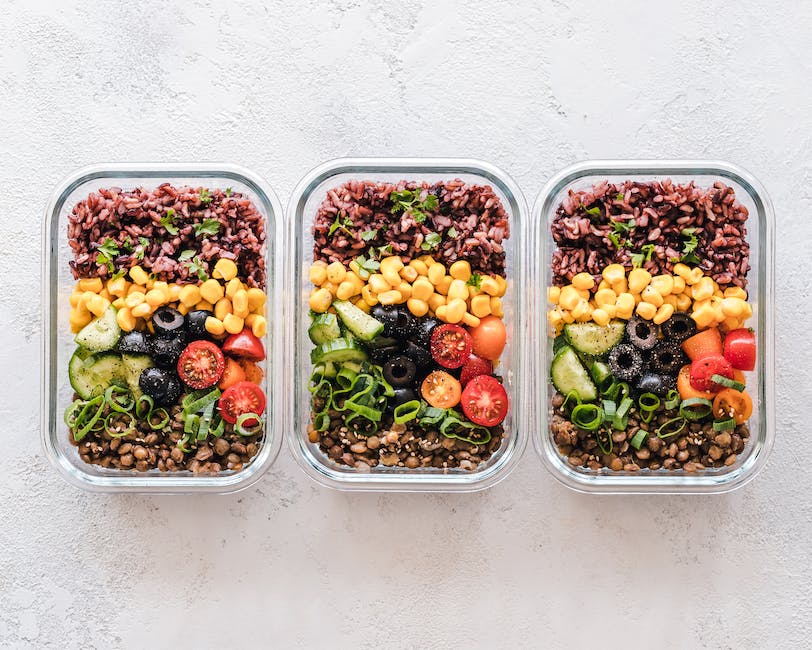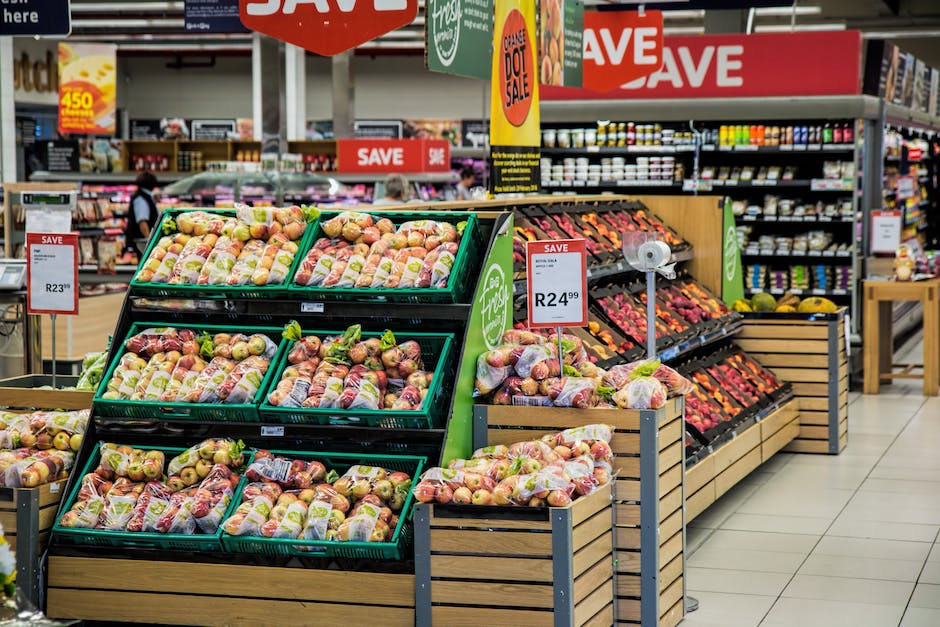Do you often find yourself spending more than you’d like on groceries every month? Have you been trying to save money on your grocery bill, but haven’t been successful? Look no further, because we’ve compiled a list of 15 simple ways to cut your grocery bill in half. Read on to find out how you can save money while still getting everything you need at the grocery store.
1. Make a List Before You Shop

Making a list before you shop is one of the easiest and most effective ways to save money at the grocery store. Jot down everything you need before you head in and make sure to stick to your list. This will prevent you from impulse buying and help you avoid overspending on items you don’t really need. Plus, it helps streamline the process of grocery shopping, so you can get in and out of the store more quickly.
Another tip when making your list is to plan your meals for the week ahead. Knowing what you’ll be cooking and eating in advance can help you make a more accurate list, so you won’t forget any key ingredients. It also helps with #3 on this list, planning meals ahead of time.
2. Buy in Bulk

Buying in bulk can be a smart way to save money, especially if you have a big household or regularly go through a lot of a certain product. However, while buying in bulk may seem like a good idea, it’s important to make sure that you’re getting a good deal for the quantity you’re purchasing. Sometimes buying in bulk may be more expensive on a per-unit basis than buying individual items; that’s why it’s important to do a little math before you commit to buying in bulk.
Another thing to keep in mind when buying in bulk is to have storage space for all of your purchases. Before making a large purchase, make sure you have space in your pantry, fridge, or freezer to store the products.
3. Plan Meals Ahead of Time

As mentioned earlier, planning your meals ahead of time can help you make a more accurate grocery list, which can ultimately save you money. In addition, planning your meals can also help you eat healthier, reduce food waste, and streamline the cooking process during the week. To get started, make a meal plan for the week based on your list and don’t forget to include leftovers for lunch or dinner the next day.
Meal planning doesn’t have to be complicated; it can be as simple as choosing a protein, a few vegetables, and a grain for dinner each night. Make sure to rotate your ingredients, so you don’t get bored with your meals. By planning ahead, you can avoid last-minute decisions to eat out or order takeout, which are typically more expensive than home-cooked meals.
4. Compare Prices

Before heading to the grocery store, take some time to compare prices at different stores. You may be surprised at how much prices can vary for the same product. Consider shopping at discount stores or stores with regular sales to save even more money. However, keep in mind that driving to multiple stores to save a few cents here and there may not be worth the time and gas money.
You can also compare prices within the same store. Before buying an item, check the unit price to see if buying a larger or smaller size would be more cost-effective. Sometimes buying a bigger size of a product can be cheaper overall, but not always. Make sure to do the math before making your decision.
5. Use Coupons

Clipping coupons can be an easy way to save money on your grocery bill. Look for coupons in your local newspaper or online before you head to the store. Some grocery stores may also have their own coupons or offer discounts for certain items. However, don’t fall into the trap of buying something just because you have a coupon for it. Make sure to only use coupons for items you actually need or regularly use.
Another tip when it comes to coupons is to use them in combination with sales. Sometimes grocery stores will have sales on certain products that you can combine with a coupon to get an even better deal. Just make sure to check the fine print on the coupon to ensure that it’s applicable for the sale item.
6. Shop Seasonally

Buying produce that is in season can save you a lot of money. Seasonal produce is often fresher and tastes better than produce that is out of season, and it’s usually cheaper as well. Plus, buying seasonal produce also supports local farmers and reduces your carbon footprint by reducing the distance your food travels.
To find out what produce is in season in your area, check with your local farmers’ market or do some research online. Get creative with your meals by exploring new recipes and ingredients that incorporate seasonal produce.
7. Buy Store Brands

Store brands can be just as good as name brands, but they can be a lot cheaper. Consider buying store brands for items you use regularly to save money. Often, store brands are made by the same manufacturers as name brands, but they are sold under the store’s label instead of the brand name.
If you’re hesitant to make the switch to store brands, start by trying a few items and see if you notice a difference in taste or quality. You may be surprised at how similar they are to name-brand products.
8. Avoid Prepared Foods

Prepared foods, like pre-cut fruit or pre-made salads, can be convenient, but they are often a lot more expensive. Consider buying raw ingredients and preparing your own foods to save money. You don’t have to be a master chef to prepare healthy and delicious meals, and you can save money by buying a few key ingredients and cooking from scratch.
Another alternative to prepared foods is to meal prep on your own time. By setting aside a few hours each week to cook up a large batch of food, you can save yourself time and stress during the workweek, while also saving money on buying multiple meals throughout the week.
9. Use a Rewards Program

Many grocery stores offer rewards programs that can help you save money on your purchases. These programs may offer discounts or allow you to earn points towards future purchases. Take advantage of these programs by signing up for them and using them regularly.
Another benefit of rewards programs is that they often notify you about sales and promotions, which can help you save even more money. Some rewards programs may also offer rewards or bonuses for referring new customers. If you have friends or family members who shop at the same store, consider referring them to earn extra rewards.
10. Don’t Shop When Hungry

Shopping on an empty stomach can lead to impulse buying and can cause you to overspend on items you don’t really need. Before heading to the store, make sure to eat a healthy and filling meal or snack to avoid shopping while hungry. Not only will this save you money, but it will also prevent you from buying unhealthy snacks or junk food that you don’t really need.
Another tip when it comes to grocery shopping is to shop alone if possible. Shopping with others, especially children, can lead to distractions, impulse buying, and longer shopping trips, which can ultimately result in spending more money.







